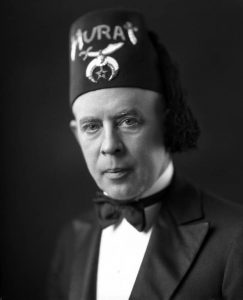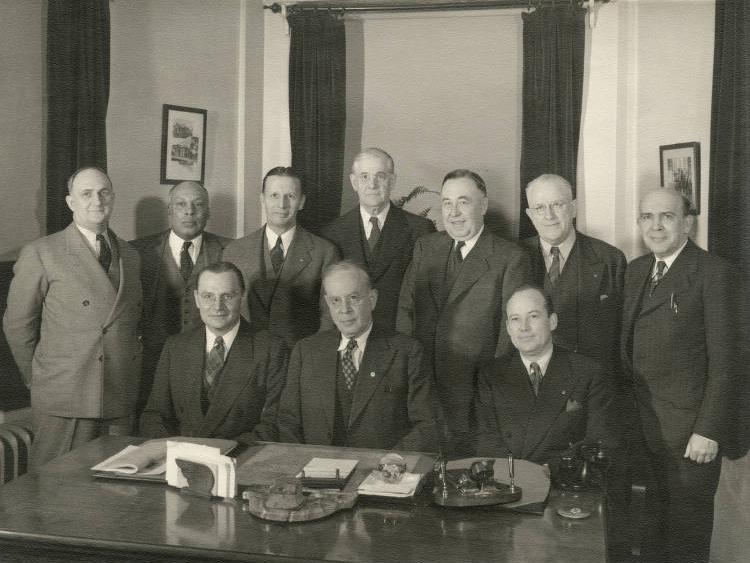
Photo info …
Credit: The Bretzman Collection, Indiana Historical SocietyView Source
(Mar. 10, 1876-Jan. 30, 1980). Born in Indianapolis, Reginald H. Sullivan came from a long line of Indiana politicians. His great-grandfather, Jeremiah Sullivan, a state legislator and later state Supreme Court justice, served on a commission in 1820 to find a suitable site for a new state capital and suggested the name Indianapolis for the new city. Reginald Sullivan’s father, , served as Indianapolis mayor from 1890 to 1893.

In his youth, Sullivan attended the private Classical Boys School, then Wabash College, graduating in 1897. While at Wabash, he was quarterback and captain of the football team. Sullivan went on to the Indiana University Law School, where he graduated in 1899. Practicing law in Indianapolis, he teamed up with Frank Ross and Edward Knight in the firm Ross, Sullivan & Knight.
Like his ancestors, Sullivan was politically active. He served one term as state senator (1911 to 1913) as a Democrat and was elected Indianapolis comptroller in 1916. He resigned in 1917 to become one of the first U.S. Army officers to be trained at but was honorably discharged after an injury.
In 1929, Sullivan was the Democratic nominee for mayor, running against Republican Alfred M. Glossbrenner. Despite being confined to for much of the campaign owing to injuries suffered in a plane crash, Sullivan easily won the election, beating Glossbrenner by approximately 33,000 votes—at that time the largest margin of victory any local candidate had ever received.
To help ease the economic hardships caused by the Great Depression, Sullivan instituted the “Made Work Program”. Under this program, the mayor urged the unemployed to go door-to-door to solicit work. A more direct method to ease unemployment under Sullivan’s administration was the building of , which was dedicated in September 1931. In his first term, Sullivan also worked to acquire for the city.
During the 1934 , street fights, attacks on buses carrying company workers, and a successful bombing of an employee’s home (another effort failed) moved Sullivan and Chief of Police to invoke special police powers and Real Silk management to increase its publicity campaign against the “misguided strikers” who used “un-American methods.” Labor accused Sullivan and Morrisey of a conflict of interest, charging that they possessed a financial interest in the company.
In 1938, Marion County chairman E. Kirk McKinney presented a petition signed by 50,000 people urging Sullivan to run again for mayor. He accepted the call and in the general election captured his second term in office by defeating GOP challenger Herman C. Wolff.
During World War II, the Sullivan administration removed approximately 40 miles of tracks and installed a citywide air raid warning system. As Indianapolis Civilian Defense Council chairman, Sullivan often personally handed out diplomas to Indianapolis men and women trained as air raid wardens. He launched a smoke abatement (see ) drive aimed at improving the city’s air quality.
Sullivan, who returned to his law practice after his second term in office ended in 1943, was a lifelong city resident. A bachelor, Sullivan lived for a number of years at his family’s home on North Capitol Avenue. He was a member of numerous organizations, including the , Turners, the Indiana Democratic Club, and St. Paul’s Episcopal Church. In 1974, he was one of the first three persons named to the Indiana Democratic Hall of Fame. Sullivan died in Indianapolis at the age of 103.

Help improve this entry
Contribute information, offer corrections, suggest images.
You can also recommend new entries related to this topic.

